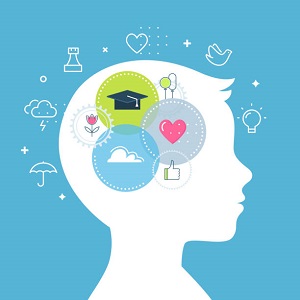Exploring the Connection between Students' Mental Health and Learning
 The international secretary of higher education at the Jesuit headquarters in Rome stated that COVID has had a significant effect on the students. This was mentioned during a speech delivered to the heads of colleges and universities on 28th of January.
The international secretary of higher education at the Jesuit headquarters in Rome stated that COVID has had a significant effect on the students. This was mentioned during a speech delivered to the heads of colleges and universities on 28th of January.
“It (Covid) has left a deep impact on the people, particularly the students. We see an increasing level of decrease in mental health of our students resulting in unfortunate suicides all over the world...” said Father Joseph Christie, secretary, Jesuit higher education, Rome, Italy.
Father Christie addressed the vice-chancellors, principals, and directors of institutes attending the yearly conference of the Jesuit Higher Education Association of South Asia (Jheasa), which took place at St Xavier's College.
“How are we going to help our students to withstand all this pressure, tensions, and to have a good healthy well-being?” he asked.
Father Dominic Savio, principal, St. Xavier’s College (Autonomous) Kolkata, while talking about the challenges and concerns of higher educational institutions spoke about mental health, too.
The correlation between the mental health of students and their academic performance in the recent years has amassed attention from researchers, policy makers & educators as well. One of the most crucial aspects of the educational landscape includes the complex interplay between the learning outcomes & mental health.
Cognitive Functioning & Mental health
Mental health is closely interwined with cognitive functioning which encompasses numerous processes that include problem-solving, attention & memory. Depression, anxiety, stress can impair these cognitive processes that would hinder a student’s capacity of absorbing and retaining information. Another important issue is chronic stress which triggers the release of cortisol – a hormone that can disrupt memory consolidation & retrieval. Therefore, students who face mental health challenges would find it difficult to not only focus but also learn efficiently and perform optimally in academics.
Cognitive Fitness an online course from Harvard Health Publishing will help you optimizing your brain health as well as cognitive function so you can live your best life. In this online course Harvard experts provide you a 6-step plan that helps in boosting brain health & cognitive fitness.
The role of Emotional well-being in learning
Emotional well-being is tied to learning outcomes. Curiosity & enthusiasm – the positive emotions, enhance creative thinking & cognitive flexibility. On the other hand, negative emotions can impede learning by narrowing attention & limiting information processing. Educational institutes that prioritize emotional intelligence & well-being promote an environment which is conducive to optimal learning outcomes.
"Studying abroad takes courage. Leaving behind family and friends and moving to a foreign country can impact a student's mental health and well-being. Students can feel lonely and may experience homesickness, which could contribute to below expected academic results," says Debarpita Bardhan Correia, Dean of the Faculty of Business, Humanities & Social sciences, The University of Buckingham.
At the University of Warwick students can take an MSc in mental health and well-being, which covers topics including qualitative & quantitative analysis, mental health & well-being.
Depression & Motivation in academic settings
Most of the time depression manifests as one of the pervasive sense of sadness, lethargy & a lack of interest in academic pursuits. The impact of depression on motivation is relevant specifically in educational contexts. Students who experience depression would struggle to find the energy as well as enthusiasm required for effective learning. In order to build a supportive learning environment it is important for educators to recognize the connector/link between motivation & depression.
In a conversation with News9, Dr Sanjay Chugh, Senior Consultant Neuro-Psychiatrist based in Delhi said, “Whenever a parent compares their child with other children on various attributes, you can take it for granted that the comparison can never be in the child’s favour. Hence, the fact of the matter is that when you are constantly telling a child that you are not as good as their peers then they are unknowingly putting a label of not being good enough or a label of not being inferior.”
“This eventually develops a feeling of low self-esteem, and the confidence of the child goes down hence this can lead to disastrous consequences for the child’s mental and emotional well-being,” he adds.
The impact of Remote Learning on Mental Health
The advent of remote learning which was accelerated by the pandemic in 2020 has brought several new challenges to the mental health of the students. Isolation, increased screen time & the blurring of boundaries between school life & home has impacted students emotionally. Hence, educators and policymakers should consider these factors while designing & implementing remote learning strategies. They should ensure that the educational objectives as well as the students’ mental well-being is being prioritized.
The University of West London offers undergraduate courses that are focused on mental health, including addiction studies & mental health nursing.
The connection between the mental health of students and learning is a dynamic & intricate interplay which influences educational outcomes significantly. Addressing mental health challenges is also a strategic investment in the academic success of students and not merely a moral imperative. Therefore, policymakers, educators & educational institutions should collaborate to create environments which prioritize mental well-being that fosters an atmosphere where students can thrive personally & academically. We can pave the way for a resilient, empowered & successful generation of learners by acknowledging as well as addressing the symbiotic relationship between learning & mental health.

